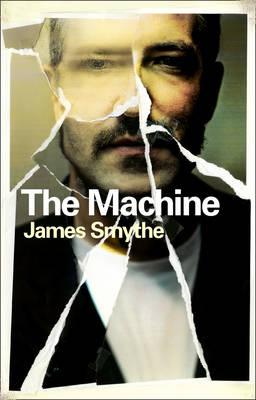Reviewed by Michael @ Knowledge Lost on
Dubbed as Frankenstein for the 21st century, The Machine is a wonderfully dark and complex novel that really deserves more attention. I normally get annoyed when novels are compared to Frankenstein; how can any novel truly compare? The Machine was a different story; I wasn’t expecting it to compare to Frankenstein, I was more interested with the dark and complex nature of this book. The novel reminds me more of the British TV show Black Mirror; there are two episodes in particular, the episode where all memories are recorded for instant playback (1×3) and the one where a woman loses her husband and turns to a service that continues his online life (2×1). The show is considered “a hybrid of The Twilight Zone and Tales of the Unexpected which taps into our contemporary unease about our modern world” and is designed to be thought provoking. In fact The Machine feels right at home with the style of that show.
Imagine if you can record all your memories and then wipe the ones that cause pain? Would removing some memories change a person completely? What if that machine wipes every memory and leaves the person catatonic? What are the moral implications of playing with someone’s memories? How should the government regulate scientific advances like this? If you could, would you try to rebuild a loved one? There are just so many questions to answer and The Machine does a great job of creating more. Don’t expect answers, this book is all about giving you questions.
I love a novel that gets you questioning life and philosophy. James Smythe masterfully does what so many try to do, it’s so refreshing to read something like this but it makes me sad that this book isn’t getting more attention. I feel the need to read every James Smythe book I can get my hands on in the desire to experience this feeling again. Science Fiction is a genre that really can explore humanity and morality and Smythe reminds the readers that it’s possible. In the 60s and 70s it felt like all Sci-Fi novels had a message and we have exchanged that for entertainment. Not that there is anything wrong with entertaining the reader but you can do that while exploring philosophical ideas.
There is so much I want to say about this book and the majority of it is positive but I won’t, I think everyone should read this book and experience it for themselves. The plot is compelling and James Smythe writes like a master of his craft. The Machine has already secured a place in my “best books of 2013” list and I want to read more of his books, just to have this experience again. Go out now and get your copy of The Machine.
This review originally appeared on my blog; http://literary-exploration.com/2013/09/11/book-review-the-machine/
Reading updates
- Started reading
- 22 August, 2013: Finished reading
- 22 August, 2013: Reviewed
